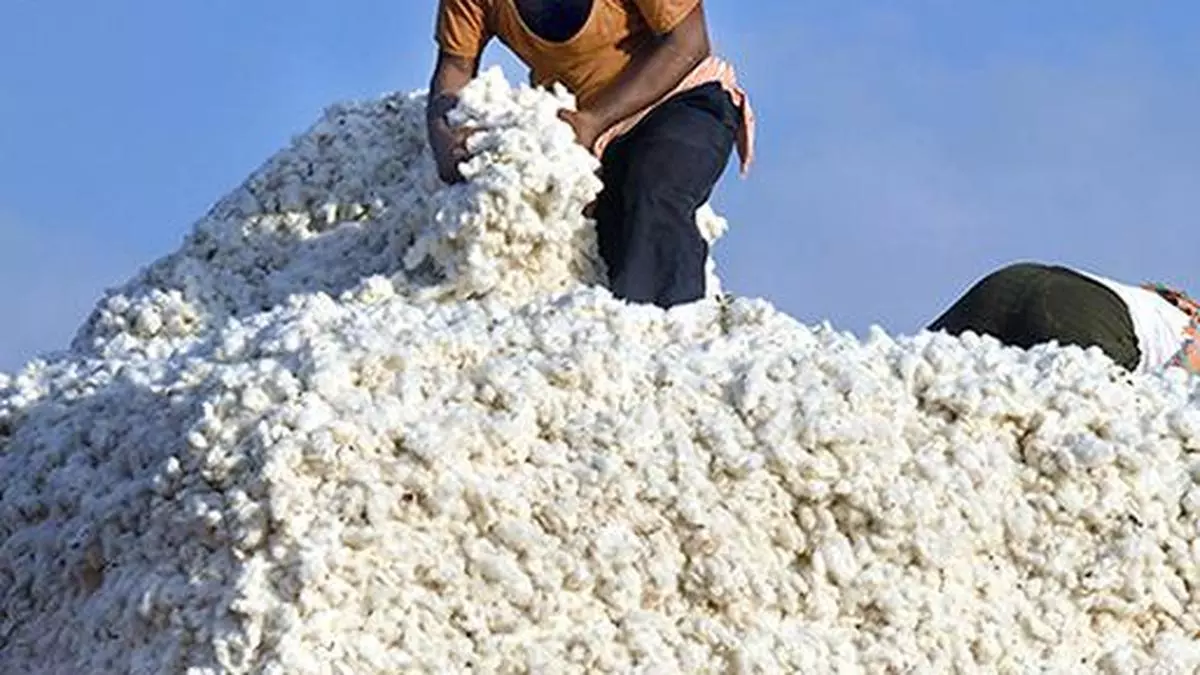Empowering cotton farmers: Sustainable water management practices for a greener future
Summers and monsoons are critical in India, often deciding the fate of the farming community. As the wave of climate change rides high, 2023 was the second hottest in 122 years. 2024 is yet again predicted to have a sweltering summer with more than the usual number of heat wave days, as per the Indian Meteorological Department.
Such a phenomenon deeply impacts the backbone of the country – agriculture. Global warming and increasing temperatures result in the scarcity of water resources – reservoir levels have been considerably low, currently at 28 per cent of capacity, lower than that of the same time last year, when it was 81 per cent.
The lack of widespread adoption of water-saving irrigation technologies in conventional cotton farming strains resources and contributes to environmental and agricultural concerns. However, water-saving irrigation technologies such as drip and micro-irrigation are slowly gaining traction, conserving water and promoting environmental responsibility. Importantly, these methods empower farmers, particularly in water-stressed regions, to adapt and thrive.
Sustainable solutions for a brighter future
The second largest cotton producer in the world, India’s cotton farmers face a complex web of challenges: erratic rainfall patterns, long dry spells, heatwaves, cyclones, and floods can devastate crops. While unpredictable rainfall and extreme weather events can be disruptive, a growing focus on water management practices is equipping them to navigate these challenges. Educational initiatives are fostering a deeper understanding of the monsoon cycle and cotton’s growth phases, allowing farmers to optimize their planting and resource allocation.
Innovation is key to a sustainable future.
Addressing these challenges requires a multi-pronged approach: easy-to-adopt soil and water conservation strategies, improved irrigation infrastructure, and the development of drought-resistant cotton varieties are all contributing to a more resilient agricultural sector. By equipping farmers with the latest water management techniques and scientific knowledge, we can enable them to enhance water usage and ensure continued success for generations to come.
Water resource management demands a new front: building farmer skills and interventions to make every drop count. With water becoming a precious resource, farmer capacity building has become an imperative for effective water management to ensure its sustainable use. Building farmers as responsible stewards of water management, armed with the right knowledge and tools, at the community level is the springboard for broader action.
Conventional cotton growing is water intensive, but promoting sustainable agronomic training can improve water efficiency. Training farmers to empower them with accurate knowledge on various interventions such as alternate furrow irrigation, soil and water conservation activities, intercropping, mulching, drip irrigation, water use planning aligned with crop cycles, rainwater harvesting techniques and well water monitoring proves to be successful channels of water management.
Revolutinising thru technology
At the same time, technology has revolutionised water management in cotton farming by providing farmers with real-time information and precision tools. This equips farmers to understand the looming problem, innovate solutions and ensure informed execution.
GIS-based mobile applications enable tech-supported identification of potential sites for water conservation activities such as water mapping and building water reservoirs. Mobile tools for design and estimation help with the design details of such structures along with costing, making it easier for the farming community to execute soil and water conservation structures. Additionally, data collection through sensor integration and remote monitoring offers a comprehensive view of the web of challenges, identification of hot spots, and enables realistic problem-solving approaches.
Towards a greener future
Empowering cotton producers in sustainable water management practices has provided results. CottonConnect’s recent Impact Report 20232 showed a reduction in water usage by 21.6 per cent over one year. The positive impact is reflected in the increased adoption of sustainable water management practices by farmers, from 57 per cent to 98 per cent. These results span India, Pakistan, Bangladesh, China, and Egypt.
Sustainable cotton farming requires a collaborative approach on water management. Farmers, communities, NGOs, and governments all have a role to play. Partnering with brands and funders can provide crucial support. Water management is vital for livelihoods and industry, so a long-term collaboration between stakeholders is essential.
The focus should shift to holistic village-based water management, encompassing irrigation, drinking water, rainwater harvesting, and well recharging. This approach requires empowering the farmer community through a trained band of Climate Change and Water Ambassadors who can educate others on water conservation. Ultimately, the end users of water will have to follow discipline in utilising the shared resource.
The urgency of climate change demands a three-pronged strategy: (a) fostering a community-wide vision for water conservation, especially among young people, (b) promoting water-optimising practices, and (c) establishing long-term partnerships to develop water infrastructure, soil and water conservation work and enabling easy access to micro-irrigation and drip technologies for farmers. These combined efforts will secure a water-sustainable, greener future.
(The author is Global Head-Farm Programmes, CottonConnect)
